BRAND STORY
Korosho & the Cashews – showing how fair trade and social responsibility are done

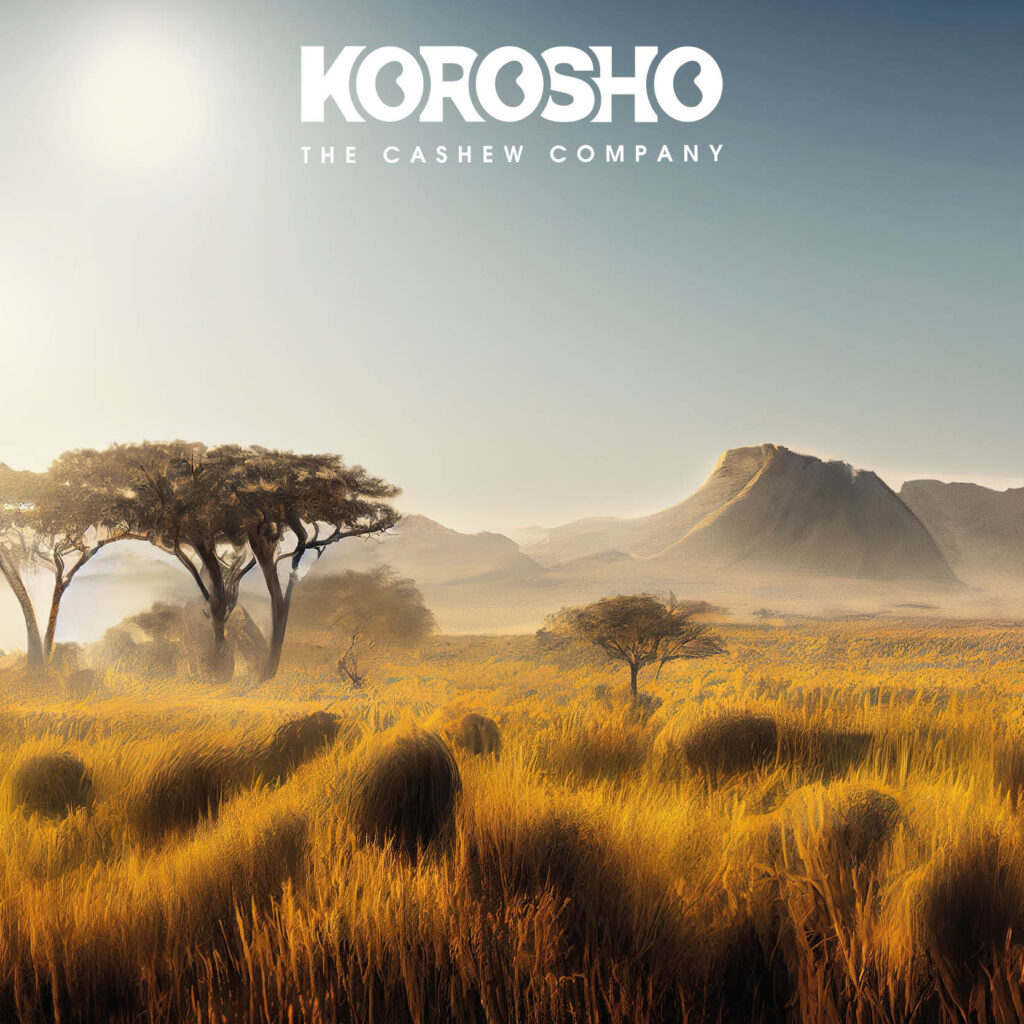
Everyone loves cashews! Those delicate nutty kernels appeal to all with their slightly buttery sweetness. For vegans, crunchy and substantial cashew kernels are veritable all-rounders – whether they are used for sweet or savory dishes. From enjoying them on their own as a snack for on the go, as part of a bar, or as a crunchy topping on curries or Buddha bowls, in all types of pesto, to delicious cashew drinks and other dairy alternative products: cashews are the star of the show in many of the most popular plant-based dishes.
But how many of us have ever thought about where cashews actually come from? What do cashew trees look like? And how are the people who grow and harvest cashews for us treated? Did you know that cashews are related to mangos and pistachios? These plants belong to the so-called Anacardiaceae family, and love to get plenty of sunshine.
The cashew tree – a treasure from the tropics
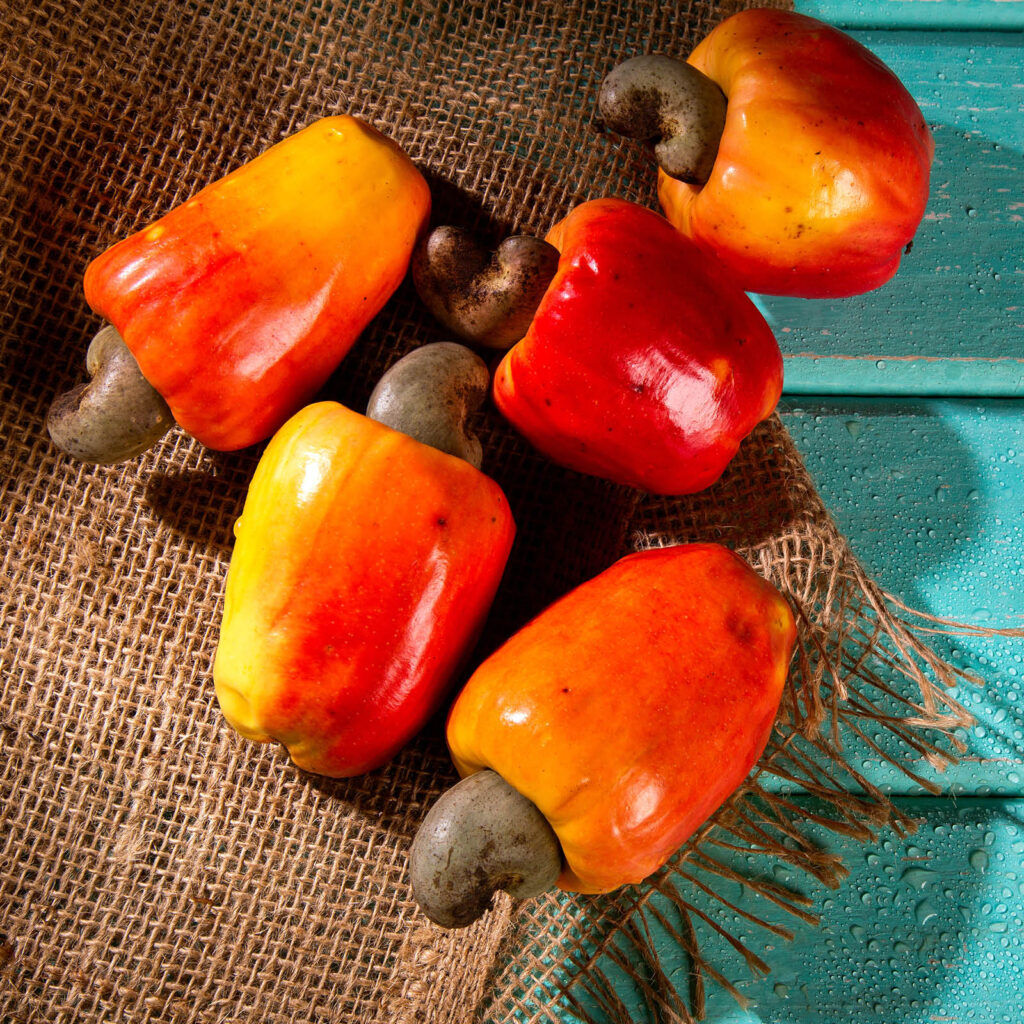
The cashew tree originally comes from South America – or, to be more precise, from Brazil (it’s known as “caju” in Portuguese). The indigenous populations there were the first to cultivate and value the trees. Nowadays, however, they are grown all over the tropics, especially in Asia and Africa. The conditions in which cashews are produced are not always sustainable or socially responsible. However, as we will see, there are also very positive examples which are sources of encouragement.
The fruits of the (usually bushy) cashew tree look very unusual. The first things you notice are the cashew apples. Hanging below them, so to speak, are the cashew nuts (which, by the way, are inedible when raw). However, they are not very easy to harvest. Each nut contains one of the delicious kidney-shaped kernels that we all know and love. When the shells are cracked, you also get broken cashew nuts, which you can also buy.
To produce high-quality cashews, what is even more important than the right climatic conditions is having well-trained, skilled people to process them. From the planting stage to harvesting and then sorting, cashew cultivation requires a great deal of painstaking work that has to be done by hand – even if technology is available, too. So, who are the people who deal so adeptly with these well-loved kernels?
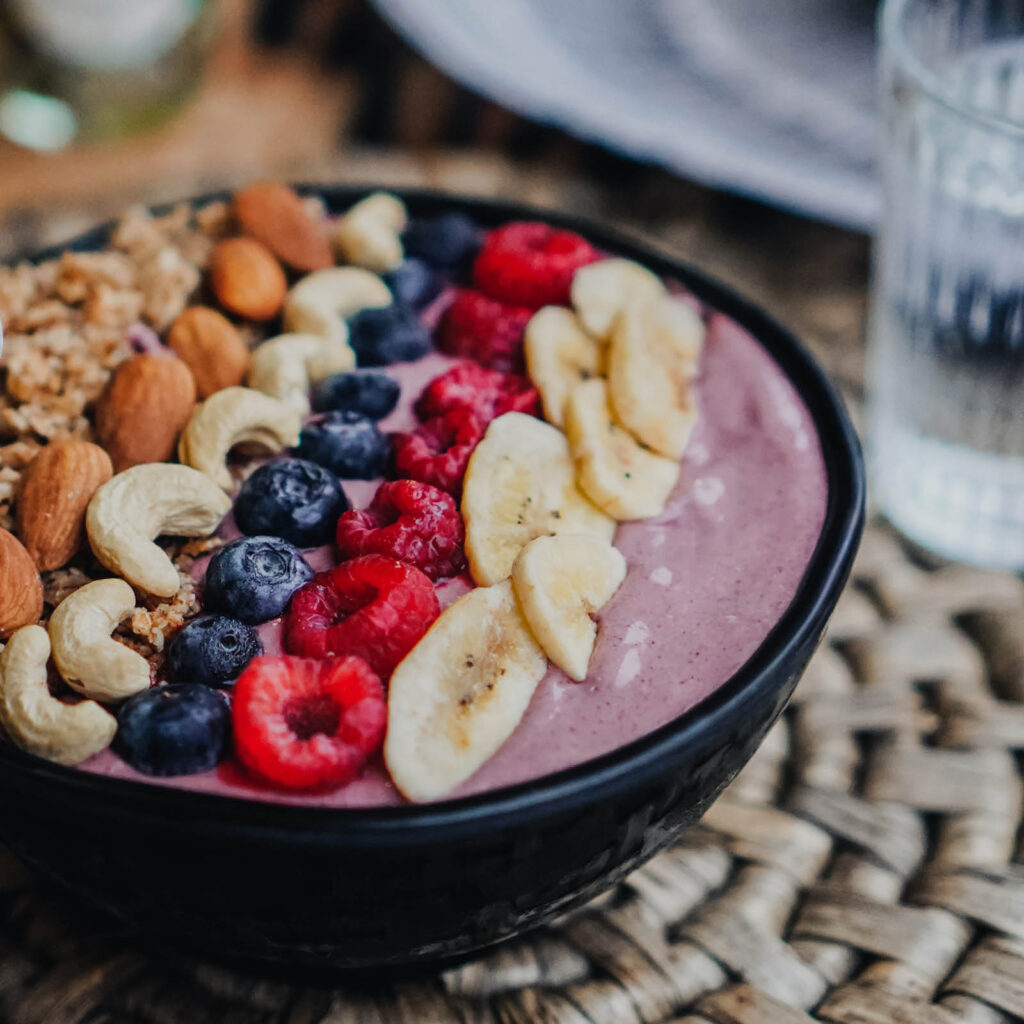

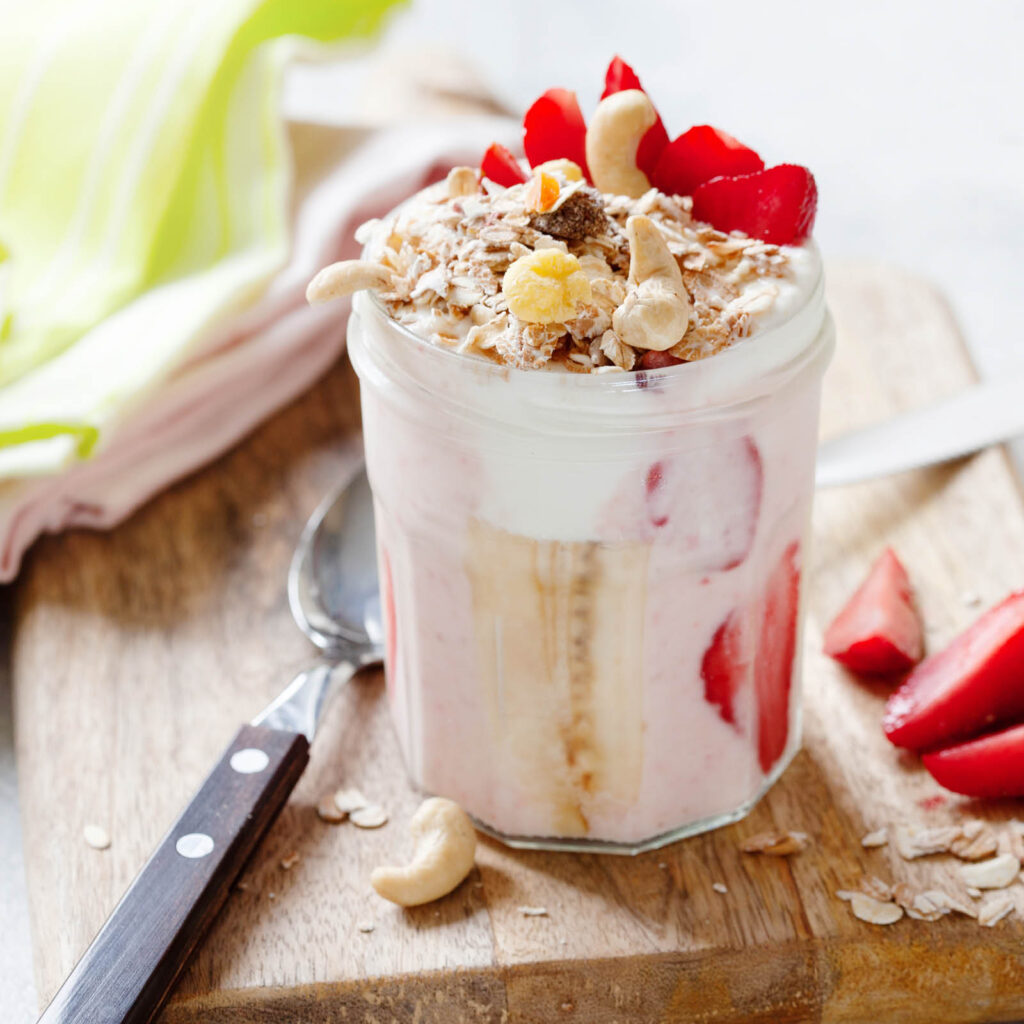
Interview with the visionary founder of the start-up KOROSHO

One young company which has asked itself all these questions about cashews, and which makes products that also benefit the people on the ground, is KOROSHO. And they have a special connection to Tanzania…
We sat down to talk to Oliver Pagel, one of the founders of KOROSHO. In the interview, he reveals interesting facts about the cashew paradise in the south of Tanzania, about what’s important to him, and what makes KOROSHO products so delicious.
VELIVERY: Hi, Oliver. I’m really happy that you’ve agreed to tell our customers a little bit about your young company. So, who are the faces behind KOROSHO?
Oliver, from KOROSHO: Hi, and many thanks for the opportunity to introduce Korosho and present our passion project! Besides me, the team at Korosho is made up of my co-founders, Christoph Heumos and Alexander (who happens to be my brother), as well as our partners in Tanzania.
VELIVERY: Behind every start-up is a great idea that sparked it. What was the idea that sparked Korosho?
Oliver, from KOROSHO: Our inspiration was sparked when we learned about the huge problems in the global cashew trade: Over 90% of cashews from Africa are currently bought, unopened, mainly by wholesalers from India and Vietnam, for prices which are much too low, before being shipped all the way to Asia where they are opened using machinery, only to then be shipped on to Europe and sold. This means that the value is added to the chain outside of the country, and the farmers are often unable to live from what they make from cultivation. When, on our first visit, we noticed that the cashews from Makonde are of an outstanding quality we hadn’t seen in Europe before, it was clear to us that we needed to change something: More value-added and a fair income in the country of cultivation, less CO2 thanks to shorter and more transparent supply chains, and the largest, most delicious cashews for Germany.
VELIVERY: By the way, what does KOROSHO mean?
Oliver, from KOROSHO: In Swahili, the official language of Tanzania, Korosho means cashew or cashew kernel.
Tanzania’s cashew paradise
VELIVERY: The cashews for your products grow in the south of Tanzania. How did you make a connection with this country, and what has come about on the ground there thanks to KOROSHO?
Oliver, from KOROSHO: The link to Tanzania came about through Christoph, who spent several months there over 10 years ago and got to know Sigi Hittu, with whom he has been close friends ever since. Sigi lives in the Makonde Plateau, where cashews are grown, and is very well-connected there. Since Korosho was founded, we have been able to offer more than 500 smallholders a secure, fair income for their cashews, above the market price, and have helped countless assistants to gain additional income in our production facility. And the great thing is: with every pack of cashews that we sell, we’ll be able to increase these numbers in the years to come!
VELIVERY: So you take fair trade and social responsibility seriously as a company, right? Could you go into a bit more detail about how KOROSHO makes the world, and especially the lives of the people in “Cashewland”, a little bit better?
Oliver, from KOROSHO: As regards your first question, you’re absolutely right! The foundation of our company is the idea of improving people’s living conditions on the ground by entering into a fair, partner-like working relationship. Our aim is to keep the value added part of the cashew processing in the country where the nuts are cultivated, so that the families on the ground can live from growing cashews. Similar to how it is with coffee and cocoa, most of the value added is created during the painstaking processing stage. In the case of cashews, this is the painstaking opening and pre-processing stage, as the cashews are enveloped in a hard shell with a caustic liquid and a thin skin, which have to be removed before the nuts can be eaten.
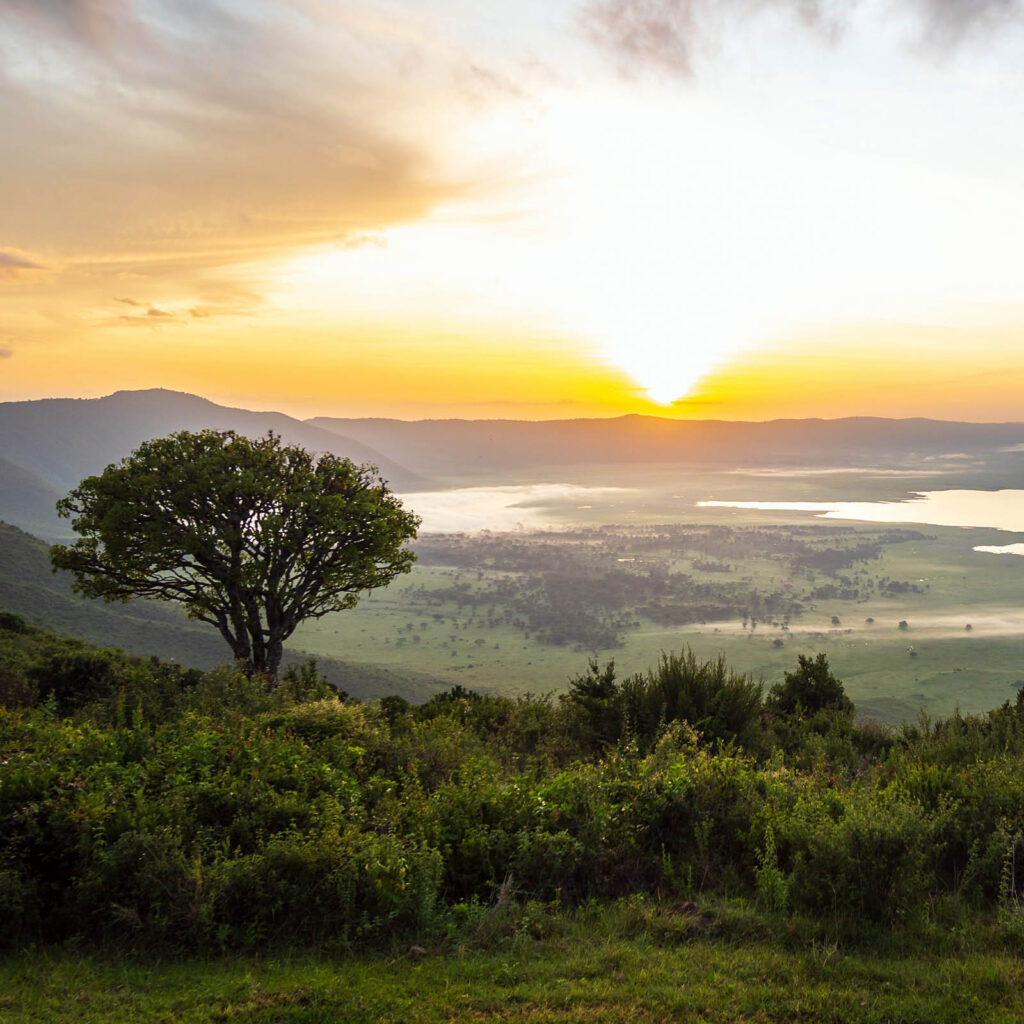
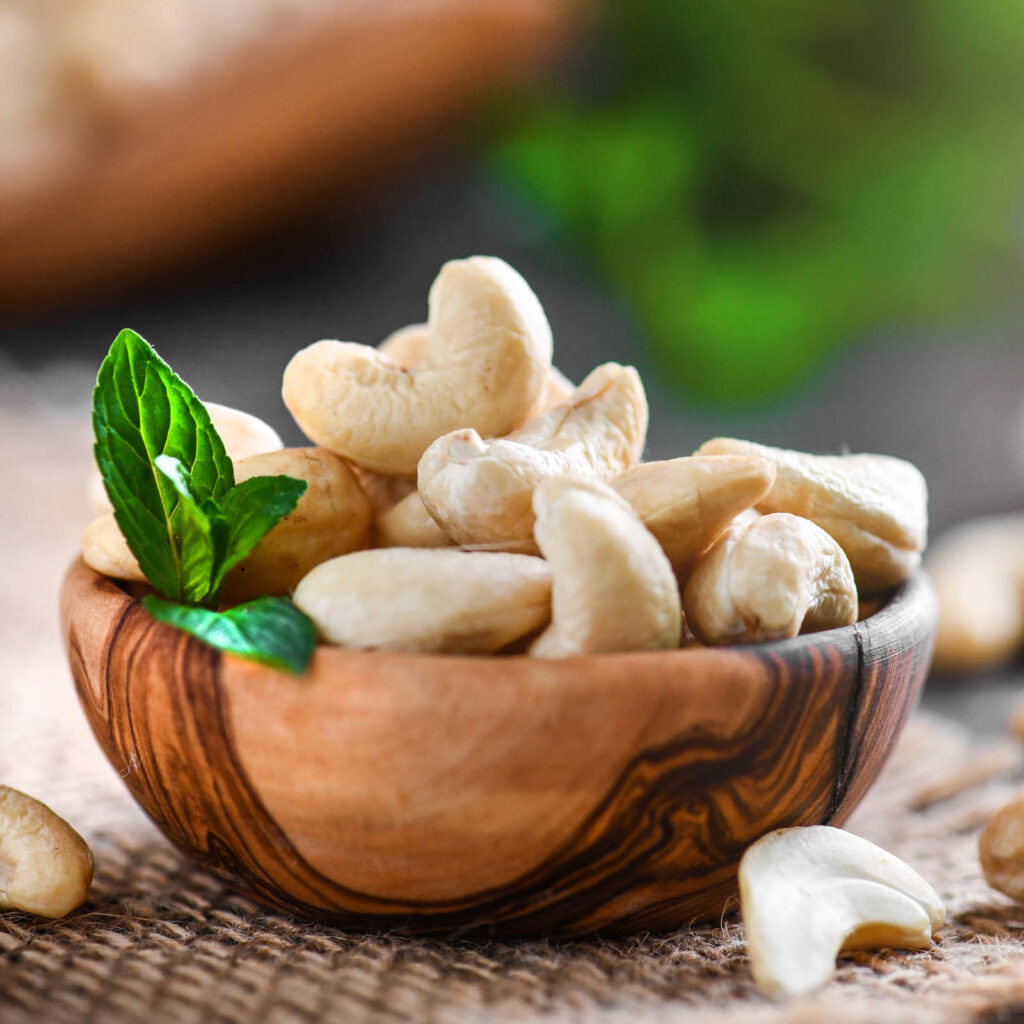
VELIVERY: When was the first time you were able to harvest, and what developments have happened since then?
Oliver, from KOROSHO: We obtained our first cashews in 2021, from the harvest which takes place annually in September/October. In this way, since 2021, we have been able to offer over 500 people a secure, fair income. Additionally, we have widened the scope of our partnerships there, brought in machinery to support the workers, and have launched other projects. For example, we are working with the local organization TARI (Tanzanian Agriculture Research Institute) on how to start processing other cashew products, thus creating new income-generating options for the farmers on the ground.
VELIVERY: How do your cashews make people’s lives better? In other words, what’s so great about those products of yours that we sell here at velivery?
Oliver, from KOROSHO: Not only are the cashew snacks we sell fairly traded and sourced directly – they are also probably the largest and most delicious cashews to be found in Germany! Because we cover all steps in the supply chain ourselves, we can offer 100% transparency about our products’ origin and production. Also, some of our cashew drinks are one of a kind in Germany and Europe. For example, our cashew-based barista-style drink was the first of its kind on the market. And our cooking cream and cashewccino are one-of-a-kind innovations in Germany, which offer maximum functionality and flavor.
A whole host of crunchy cashew products to choose from
VELIVERY: What special properties do cashews have?
Oliver, from KOROSHO: Cashews are almost 20% protein and only 42% fat, which is a very favorable set of proportions in comparison to other nuts or seeds. What’s important to remember is that not all fats are made equal. Cashews contain unsaturated fatty acids which are vital for your body. By replacing saturated fatty acids with monounsaturated and/or polyunsaturated fatty acids in your diet, you can improve your body’s ability to maintain a normal cholesterol level in the blood.
Cashews also contain plenty of B vitamins, one of which is folic acid, which helps with blood production and plays a role in cell division. What’s more, they also contain iron, potassium, magnesium and phosphorus. Iron helps with normal cognitive function, and phosphorus with normal cell membrane function. Potassium and magnesium support normal muscle function.
Cashews also contain the magic ingredient L-tryptophan. This amino acid is an important building block in the messenger substance serotonin. Of course, you should always make sure you eat a varied, balanced diet, and have a healthy lifestyle.
VELIVERY: What are some of the different ways that your cashew drinks can be used?
Oliver, from KOROSHO: In general, it can be said that cashews have the perfect basic properties for making all types of yogurt, milk and cheese alternatives. That means that our current range can essentially be used in any way you want. Our cooking cream adds the finishing touches to any meal, be it a creamy soup, sauce, curry, salad dressing or a dessert such as a really creamy vegan ice cream, waffles or pancakes. Our sugar-free plain cashew drink is perfect for making healthy porridge, muesli or shakes. Thanks to its relatively neutral flavor, it can be used for both savory and sweet dishes. For all coffee lovers, we also have the first cashew-based vegan iced coffee, as well as a barista-style drink for long-lasting, frothy white foam on your cappuccino. Both can, of course, be used for other things, such as in delicious cocktails or for baking.
VELIVERY: What is it that makes your snacks so special?
Oliver, from KOROSHO: The special thing about our snacks is that, thanks to having the perfect conditions for growing in Tanzania, our cashews are huge and have a very intense flavor. Also, unlike with other cashews and nuts, our cashews are not watered – they grow thanks to rainwater alone! What’s more, they are farm-fresh and do not lose any of their wonderful flavor during months of unnecessary detours or in warehouses.
Sustainability in word and deed at KOROSHO
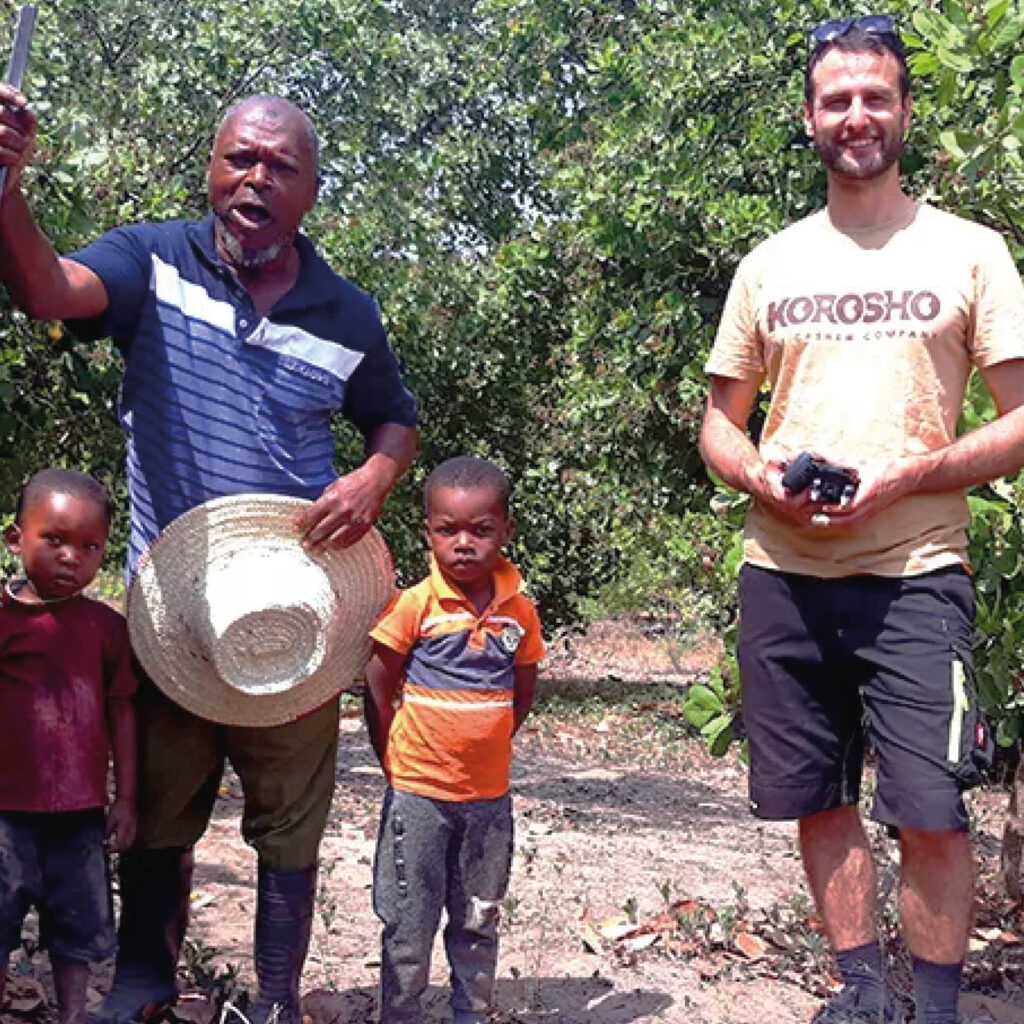
VELIVERY: What does sustainability mean to you at KOROSHO?
Oliver, from KOROSHO: To us at Korosho, sustainability means that everything we do has to be in harmony with our principles for People, Planet and Profit. Each new sustainable development must have a social aspect (people). A lifestyle can only be ecologically sustainable (planet) if it only uses natural resources to the extent that they can regenerate. Finally, each development can only be sustainable and long-term if the economic situation (profit) is also sustainable, i.e. it can be run on a permanent basis. Of course, we are not perfect in all areas yet, but we are constantly improving.
VELIVERY: Could you tell us a little more about what’s close to your heart and what inspires you?
Oliver, from KOROSHO: The cooperation with the smallholders and organizations in Tanzania, as well as the development of the infrastructure in the area where our cashews are cultivated, are really close to our hearts. We are incredibly happy about how much joy, openness and drive our ideas have been met with in Tanzania, and how much we have been able to set in motion on the ground there, together. We are also driven by our passion for delicious, vegan foods which, by being so useful, also make non-vegans reach for a plant-based alternative on a regular basis.
VELIVERY: And what kind of thing can our customers look forward to in the future?
Oliver, from KOROSHO: We are working on countless product innovations – so many that we sometimes have to put the brakes on. There will continue to be more exciting topics and products including nut butters and spreads, new drinks and creams (such as whipping cream), as well as meat substitute products – watch this space!
VELIVERY: Many thanks for the inspiring conversation!
We hope that you found these insights into KOROSHO as interesting as we did. Now that you know how fair and sustainable these cashew products are, they’re bound to taste even better, don’t you think?















